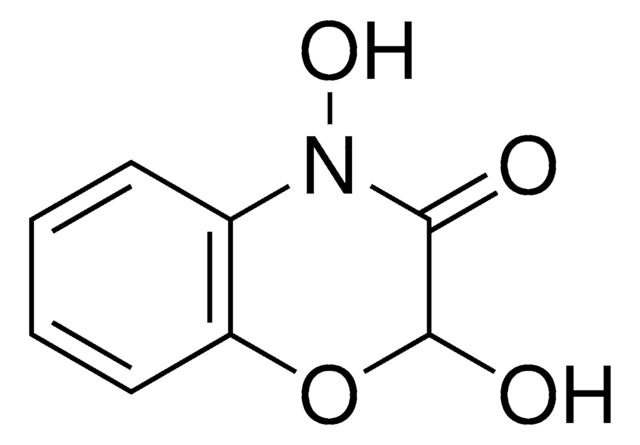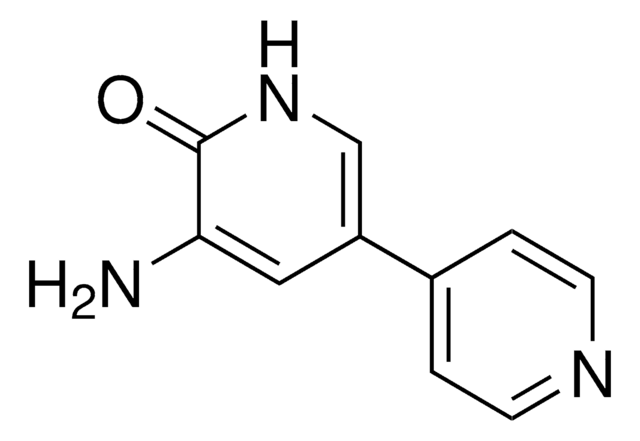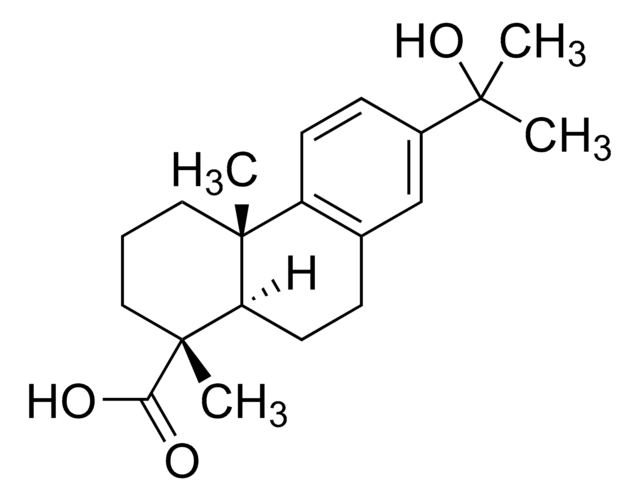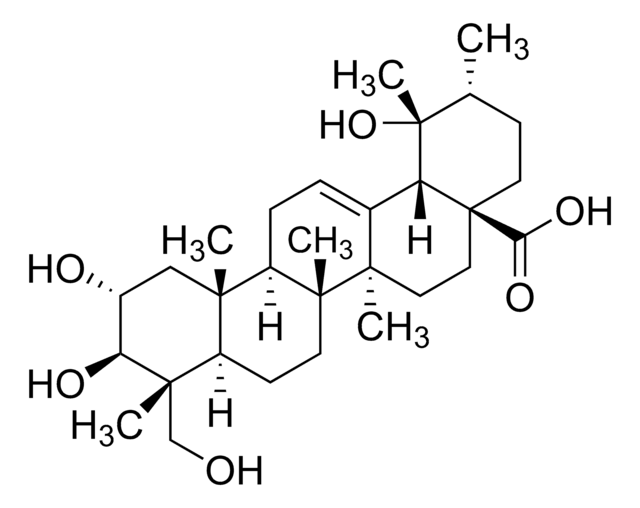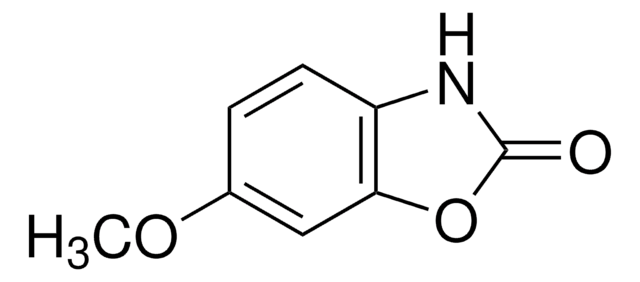SMB01336
(±)-DIBOA
≥95% (HPLC)
Synonym(s):
DIBOA, 2,4-Dihydroxy-1,4-benzoxazin-3-one, 2,4-Dihydroxy-3,4-dihydro-2H-1,4-benzoxazin-3-one
Sign Into View Organizational & Contract Pricing
All Photos(1)
About This Item
Recommended Products
Quality Level
Assay
≥95% (HPLC)
form
solid
mp
153—154 °C
storage temp.
2-8°C
InChI
1S/C8H7NO4/c10-7-8(11)13-6-4-2-1-3-5(6)9(7)12/h1-4,8,11-12H
InChI key
COVOPZQGJGUPEY-UHFFFAOYSA-N
General description
DIBOA and its C-7-methoxy derivative DIMBOA are the predominant representatives of benzoxazinoids in plants. The end product of the benzoxazinoid biosynthesis is the glucoside form which has reduced toxicity compared to the aglucon. The toxic aglucon is produced upon disintegration of the cell due to pathogen or pest attack.
Application
Metabolomics research
Other Notes
For additional information on our range of Biochemicals, please complete this form.
Storage Class Code
11 - Combustible Solids
WGK
WGK 3
Choose from one of the most recent versions:
Certificates of Analysis (COA)
Lot/Batch Number
Sorry, we don't have COAs for this product available online at this time.
If you need assistance, please contact Customer Support.
Already Own This Product?
Find documentation for the products that you have recently purchased in the Document Library.
Monika Frey et al.
Phytochemistry, 70(15-16), 1645-1651 (2009-07-07)
Benzoxazinoids are secondary metabolites that are effective in defence and allelopathy. They are synthesised in two subfamilies of the Poaceae and sporadically found in single species of the dicots. The biosynthesis is fully elucidated in maize; here the genes encoding
Hossein Hazrati et al.
Journal of agricultural and food chemistry, 68(39), 10609-10617 (2020-09-03)
Plants have evolved advanced chemical defense mechanisms, including root exudation, which enable them to respond to changes occurring in their surroundings rapidly. Yet, it remains unresolved how root exudation affects belowground plant-plant interactions. The objective of this study was to
Ye Wang et al.
Oncotarget, 8(20), 33405-33415 (2017-04-20)
The non-receptor tyrosine kinase BMX has been reported in several solid tumors. However, the alternative splicing of BMX and its clinical relevance in lung cancer remain to be elucidated. Exon1.0 array was used to identify a novel alternative splicing of
Our team of scientists has experience in all areas of research including Life Science, Material Science, Chemical Synthesis, Chromatography, Analytical and many others.
Contact Technical Service